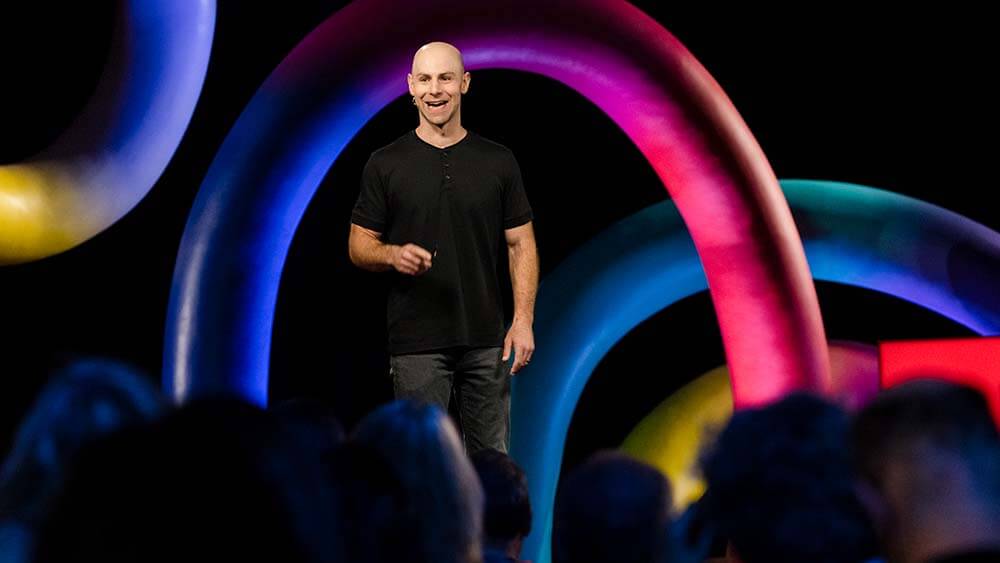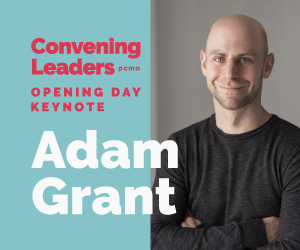
Many of the claims made about generational differences are stereotypes, said organizational psychologist and Convening Leaders 2023 keynote speaker Adam Grant.
Has the pandemic changed Americans’ priorities in terms of how much of themselves they’re willing to dedicate to a job? That’s the question Margaret Hoover asked Wharton organizational psychologist and best-selling author Adam Grant recently on a PBS “Firing Line” episode (watch below). Grant, who will keynote PCMA Convening Leaders 2023 on Jan. 9 in Columbus, Ohio, said while he would love to see better data on this, he had some anecdotal insights.
He thinks the pandemic caused people to rethink their relationship to work. Many people, Grant said, decided, “I don’t want my life to be defined by work. Why do I arrange my whole life around work? What if I could figure out what my life priorities are and then fit my job into that?”
And, he added, he’s seen “a lot of leaders and managers sort of wake up and realize, ‘You know what, if people don’t have quality of life, I’m not going to get quality work.’ And if there is a silver lining of COVID for our jobs, it’s that for the first time in my two decades as an organizational psychologist, we have many leaders and managers realizing that mental health is part of health.”
Caring for your employees is good for the bottom line in the long run, he said, although “a lot of leaders see it as a cost or as a distraction. In the short term, maybe it is. In the long run, people generally will not care about your mission unless you care about them. Full stop.”
Hoover asked Grant if that shift is generational. “These are not characteristics that define GenX or the Baby Boomer generation,” Hoover said. “So how much of this is generational and how much of this is the new normal created by a new economy and COVID?”
“I’m pretty skeptical of claims that generations differ in their fundamental values,” Grant replied. “I think that human values are part of our psyche, and they don’t seem to just radically shift from one generation to the next. I think a lot of the claims we make about generational differences are stereotypes. Right? They’re generalizations about an entire group of people that happen to be born in the same roughly 20-year window and assuming they have a bunch of common characteristics.”
RELATED: Convening Leaders 2023 registration is open.
What has changed, he continued, “is people’s expectations and the way that they express their values. I think we should be really careful when we assume this premium on caring about people is a millennial goal. I think what’s changed is that millennials are more self-expressive than other generations so they’re a lot more likely to tell you — and they also have the communication tools to make it very, very apparent — when they are not getting what they want and that’s true of Gen Z as well. And so I don’t think it’s a generational shift so much as a set of expectations that have changed and a set of tools and technologies that have made it possible to voice those expectations and actually get heard.”
Michelle Russell is editor in chief of Convene.
Adam Grant On “Firing Line”

